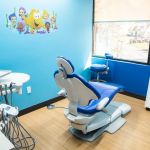Oral Health for Teenagers
As teenagers grow from junior high to early adulthood, it becomes crucial for them to have a good understanding of dental care for a healthy mouth. Wisdom teeth emergence is a significant milestone, and knowing when and what to expect is important. Braces can be a part of the teenage years, and having pro tips for the orthodontic journey is valuable. Flossing is an essential daily step for fresh breath and healthy teeth that should never be skipped. There are also various videos offering straightforward advice for teenagers concerned about their teeth and overall well-being.
Top Dental Issues for Teens
Parents and teenagers need to be aware of 9 crucial dental concerns, ranging from orthodontia to mouth guards. Bad breath is a common worry, and understanding its causes and solutions is key. Safe tooth whitening methods are sought after, especially for those aiming for an Instagram-worthy smile. Mouth piercings and their potential impact on dental health need to be considered. Smoking not only causes bad breath but also has serious implications for overall health and the beauty of the smile. Wearing a mouthguard during sports is essential for protecting teeth from injuries. Certain foods can damage teeth, while others contribute to a healthy smile. Sparkling water can be a mouth-healthy choice, and knowing the best foods and drinks for dental health is beneficial.
Brushing and Hygiene Tips
Teenagers don't always brush their teeth regularly, and there can be multiple reasons for this. Parents can start by explaining the importance of brushing. The basic steps for brushing teeth include using a soft-bristled toothbrush, aiming to clean all surfaces, starting at a certain area, moving the brush gently, and spitting after brushing. Using dental floss or an interdental brush daily is also important. When choosing a toothbrush, both manual and electric options can be good if used correctly. After brushing, the toothbrush should be rinsed with tap water and stored upright to air-dry. Fluoride is essential for strong teeth and preventing decay, and it can be obtained from toothpaste, tap water, and certain foods. A balanced diet is crucial, avoiding sugary foods and drinks, as well as smoking, alcohol, and other drugs.
Dental Visits and Specialists
Regular dental check-ups are necessary, and the frequency is recommended by the dentist, usually every 6-12 months. Various dental professionals, such as dental therapists, hygienists, oral health therapists, paediatric dentists, or orthodontists, may be involved in a teenager's oral care. In some cases, teenagers may be eligible for public dental services or covered by the Australian Government's Child Dental Benefits Schedule. Private dental clinics are also available, but appointments come at a cost, which may be partially reimbursed with private health insurance.
Oral Health Precautions and Education
Assessing the adolescent's risk factors for oral health issues using risk assessment tables and tools is important. Brushing with fluoridated toothpaste twice a day and flossing daily are fundamental. A balanced diet including various healthy foods helps maintain oral health. Learning to prevent oral injuries and handle emergencies, such as tooth loss or fracture, is essential. Smoking and exposure to secondhand smoke should be avoided. Both parents and teenagers should be under the care of an oral health professional.
In conclusion, dental care education for teenagers encompasses a wide range of aspects, including understanding the changes in their teeth and mouth, adopting proper hygiene practices, being aware of common dental issues and their solutions, scheduling regular dental visits, and making informed choices regarding diet and lifestyle. By equipping teenagers with this knowledge, they can take proactive steps towards maintaining a healthy and beautiful smile throughout their adolescence and beyond.

 Darren Tong, DDS4.0 (17 review)
Darren Tong, DDS4.0 (17 review) Pasadena Dentist Smile Now Dental4.0 (43 review)
Pasadena Dentist Smile Now Dental4.0 (43 review) Tacoma Endodontic Studio4.0 (243 review)
Tacoma Endodontic Studio4.0 (243 review) Maddison Ave Dental4.0 (83 review)
Maddison Ave Dental4.0 (83 review) Pasha Dental Group Los Angeles - Dr. Nazli Majd4.0 (181 review)
Pasha Dental Group Los Angeles - Dr. Nazli Majd4.0 (181 review) Midwest Dental - Middleton4.0 (159 review)
Midwest Dental - Middleton4.0 (159 review) The Importance of Oral Health Education During Pregnancy for a Healthy Pregnancy
The Importance of Oral Health Education During Pregnancy for a Healthy Pregnancy Best Tips for Brushing Your Teeth Properly for Healthy Gums: Essential Techniques for Oral Health
Best Tips for Brushing Your Teeth Properly for Healthy Gums: Essential Techniques for Oral Health Why Skipping Dental Checkups Can Lead to Bigger Oral Health Problems
Why Skipping Dental Checkups Can Lead to Bigger Oral Health Problems Advantages of Porcelain Dental Restorations
Advantages of Porcelain Dental Restorations How Can Diabetes Cause Tooth and Gum Problems? Preventing and Managing Oral Health Issues
How Can Diabetes Cause Tooth and Gum Problems? Preventing and Managing Oral Health Issues Healthy Habits for Promoting Good Oral Health and Hygiene: Tips for a Healthy Smile
Healthy Habits for Promoting Good Oral Health and Hygiene: Tips for a Healthy Smile